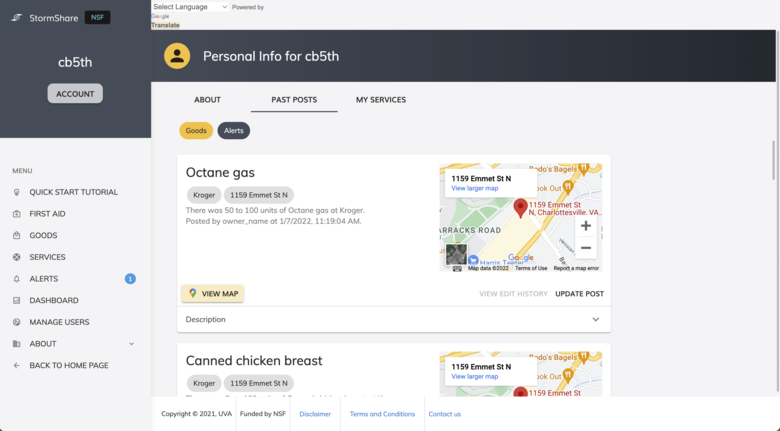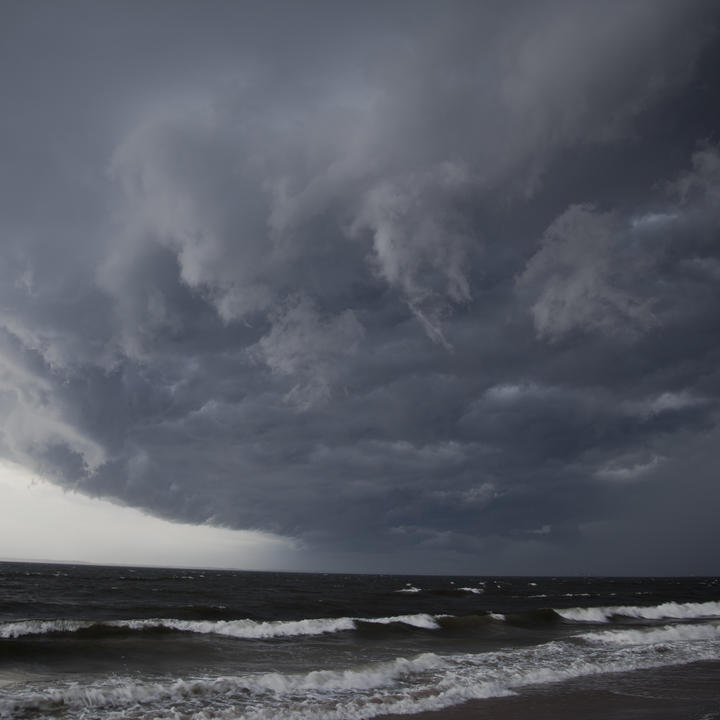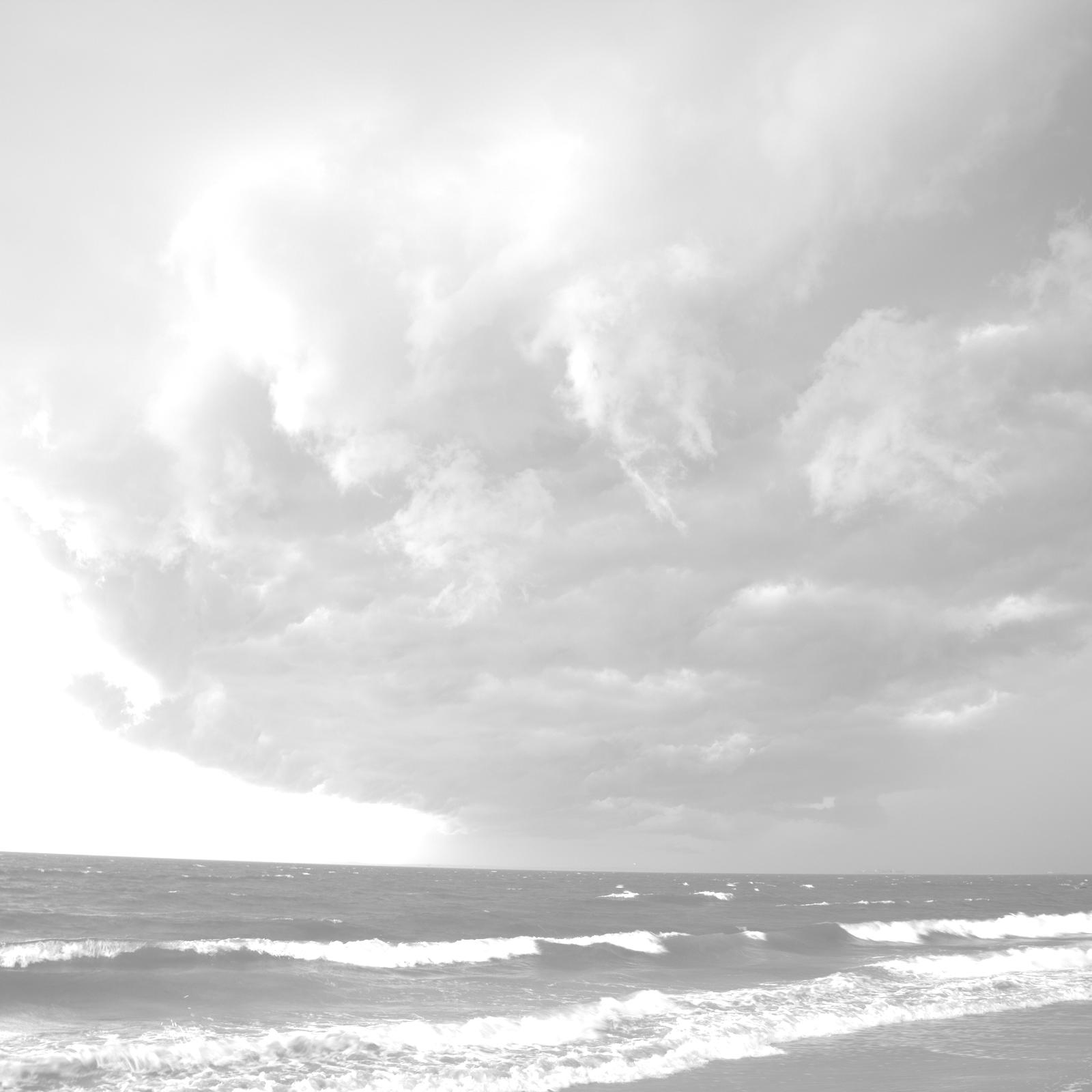The goals of the UVA components of the overall project are to model the hurricane evacuation decision-making process and interventions such as incentives to evacuate, understand behaviors (e.g., sharing resources and information) that will aid people who remain behind (i.e., do not evacuate) to better survive the hurricane and its aftermath [resiliency], and develop a web-based application (i.e., web app) to aid people in need of assistance during a hurricane event.
In the first four years of this project, we have published 35 papers on evacuation modeling and resilience, collective action modeling, group behavior, agent-based modeling and methods, contagion modeling, and software infrastructures. Among specific findings is that neglecting family concerns over looting in modeling families’ decisions to evacuate in the face of an oncoming hurricane can overestimate the number of families who will evacuate by up to 50% (Figure 1). The web app prototype for resource sharing has been completed and evaluated by a focus group (Figure 2).
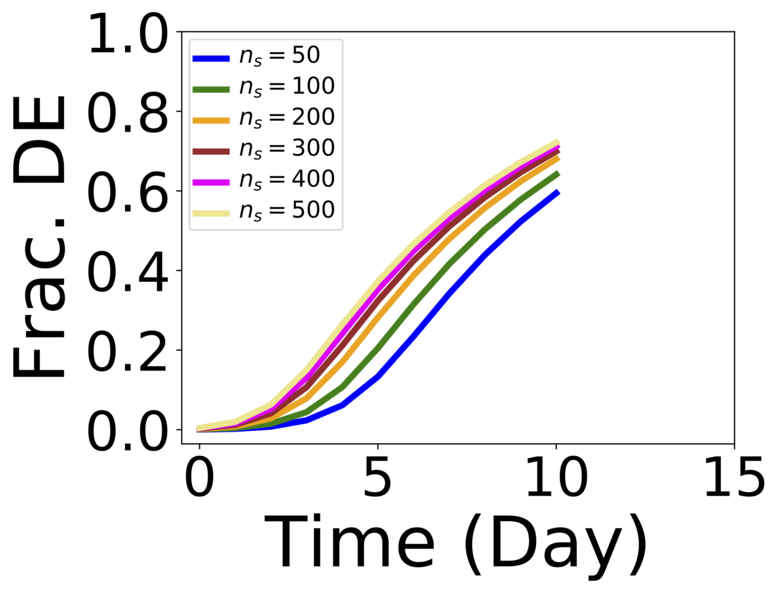
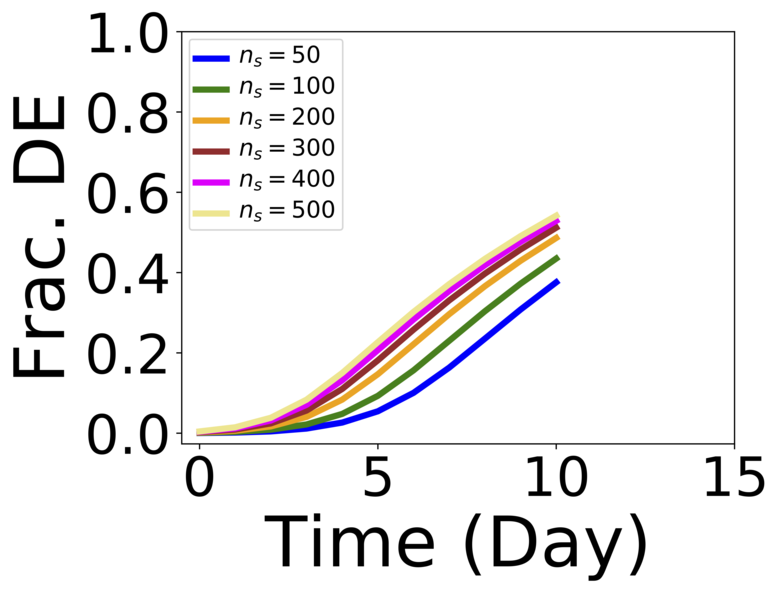
Figure 1. Simulation results of modeling the evacuation behavior among families in VA Beach, VA. Left: results for the standard model. The fraction of the population deciding to evacuate (Frac. DE) is plotted as a function of time in days (day 10 is hurricane landfall) for different numbers (ns) of families that are seeded as evacuating (state 1) at a time (t=0). Right: analogous temporal simulation results for the 2-mode-threshold model. The fraction of families evacuating can decrease by 50%. The networks are Kleinberg small-world networks with a short-range distance of 40 m number q of long-range edges of 16, and r=2.5.
